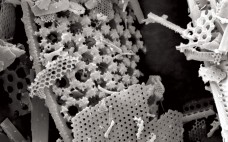In the past decade, biopharmaceutical manufacturers have demonstrated major improvements in monoclonal antibody (MAb) production, exhibiting product titers frequently in the range of 5–10 g/L using standard fed-batch mammalian cell cultures (1, 2). Increased product yields allow for smaller-scale production vessels. With 2,000-L single-use bioreactors already commercially available, single-use manufacturing of biomolecules becomes more and more an option. Other recent developments in the biopharmaceutical industry — e.g., drugs for smaller indications and more potent drugs allowing for lower dosages —…
Author Archives: Benjamin Minow
High–Cell-Density Clarification By Single-Use Diatomaceous Earth Filtration
Single-use concepts are widespread in all unit operations of the biopharmaceutical industry. Although single-use technology is rapidly advancing and considered to be highly advantageous in many regards (1,2,3), in some cases it cannot (yet) compete with classical manufacturing systems. Processes with a demanding character (e.g., high cell densities, high titers, high turbidities, increased particle/contaminant loads) especially can bring disposables to their limit of technical feasibility, especially in product harvesting (4,5,6). Here we focus on that step, which is defined as…
Implementing a Fully Disposable MAb Manufacturing Facility
Biopharmaceutical contract services have seen some very important changes and growth in recent years, part of an increasing trend toward outsourcing by pharmaceutical companies both large and small. And we have seen a significant change in the types of services demanded by clients. In addition to typical services such as validation, analytical services, and training, for example, demand has increased for outsourcing of process development, mammalian cell culture, good manufacturing practice (GMP) production, and final formulation and filling.…

